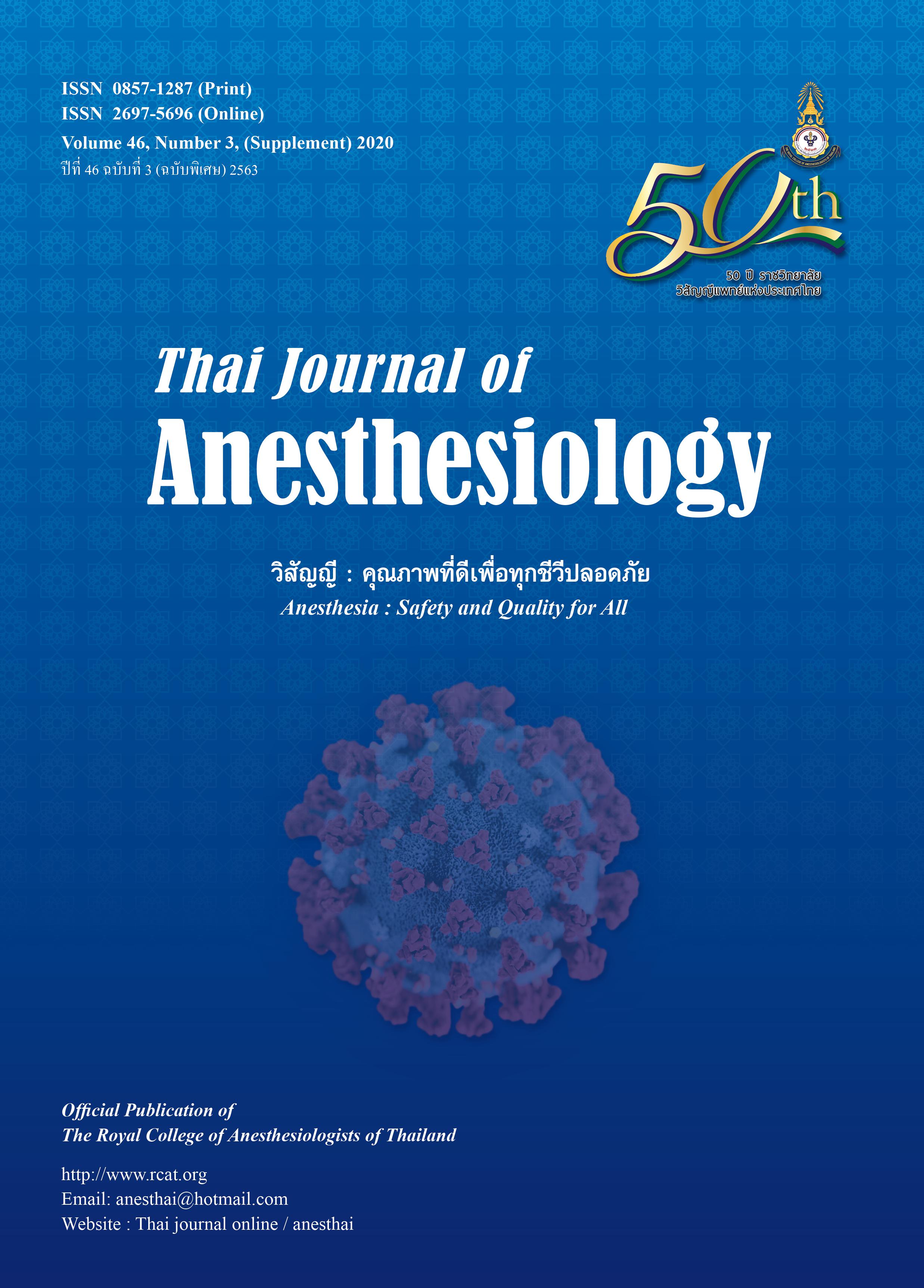The Online Learning Anesthetist’s Non-technical Skills (ANTS) in Nurse Anesthetist Students during COVID-19
Main Article Content
Abstract
The skills in anesthesiology (technical skills) were
rapidly developed and continuously progressed in all
areas, especially the safety of anesthetic services. There
are, however, reports of incidents affecting patient safety
at a high level. In work often, an error occurs, which may
be an accidental mistake and/or unavoidable. Department
of Anesthesiology Faculty of Medicine Siriraj, therefore,
takes the importance of planning to increase security in
anesthesia service in personnel at all levels including
nurse anesthetist students into account. There are the
formulation of guidelines and the training for clear safety
standards to develop the skills in using various equipment.
The equipment has the qualifications to help increasing
the modern security and to strengthen the safety culture
in personnel for the development of all-round skills, which
leads to enhance awareness and to ensure the maximum
safety in patient care as well.
Article Details
References
2. Raksamani K. Teaching non-technical skills in anesthesiology. Thai J Anesthesiol 2015;41:47-52.
3. Flin R, Patey R. Improving patient safety through training in non-technical skills. BMJ 2009;Sep 23;339:b3595. doi: 10.1136/bmj.b3595.
4. Roche F. Human factors and non-technical skills: Teamwork. J Perioperative Practice 2016;26:285-8.
5. Flin R, Patey R, Glavin R, Maran N. Anaesthetists’ non-technical skills. Br J Anaesth 2010;105:38-44.
6. Shi C, Wang L, Li X, et al. Virtual classroom helps medical education for both Chinese and foreign students. Eur J Dent Educ 2015;19:217-21.
7. ธัญจิรา จิรนันทกาญจน์. การใช้แบบเรียนออนไลน์ในการศึกษา แพทยศาสตร์. Siriraj Medical Bulletin 2016;9:98-106.
8. Blondy LC. Evaluation and application of andragogical assumptions to the adult online learning environment. J Interactive Online Learning 2007;6:116-30.
9. Dennick R. Constructivism: reflections on twenty five years teaching the constructivist approach in medical education. Int J Med Educ 2016;7:200.
10. Saqr M, Fors U, Tedre M. How the study of online collaborative learning can guide teachers and predict students’ performance in a medical course. BMC Med Educ 2018;18:24.
11. Boonmak P. Simulation-based medical education to improve Non-Technical Skills. Thai J Anesthesiol 2017;43:352-63.
12. Biggs JB. From theory to practice: A cognitive systems approach. Higher Education Research & Development 1993; 12:73-85.


